When comparing the recent launch of the 'Go Light' product and the announcement concerning collective agreements with the uncertain situation surrounding Air Malta eight months ago, there seems to have been a radical change in approach by the company and the government, why?
Air Malta is not an ordinary company owned by the government, it is a national asset and everybody agrees it should remain under the control of any government, both present and future, for the simple reason that it is a catalyst for our economic growth.
The Maltese economy has evolved substantially over the last 30 years. The emergence of the iGaming industry, the financial services sector, the high net-worth individual, and the IIP contribute greatly to our national growth which means that the airline is no longer just servicing tourism.
We have approached Air Malta with two principles which work in synchronisation, the first being the sustainability of the company as a standalone commercial entity that can operate without subsidies. It is important to know that the era of subsidies ended with the expiration of the EU restructuring plan in 2016.
Secondly, and more important, is the necessity of having a national airline which connects us to mainland Europe and beyond. Without it, our economy will be seriously affected.
These two principles place Air Malta on a different level to any other company. It is vital for the country that the airline does not fail.
Between 2012-2017, the restructuring programme which was agreed to with the EU was aimed at cost cutting within the company, but did not include any plans for growth; it was not increasing revenue, capacity, or the commercial aspect of the company. While the company reduced its aircraft and cancelled certain routes, it did not bring about efficiency as the fixed costs were not spread over a wider commercial spectrum in order to become more competitive.
Indeed, the EU-approved plan envisaged that the airline would have to give up capacity as a compensatory measure in order for it to receive government assistance.
Directly and indirectly, Air Malta has received well over €200 million in capital injection, be that in property or direct cash, which supported the day-to-day operations without any real capital investment made within the company.
Once the restructuring programme ended, and a new administration came in under Tourism Minister Konrad Mizzi, an evaluation took place and it was agreed that the company needed to grow in order to provide more opportunities to its workers, provide better connectivity for the country, and render the company sustainable.
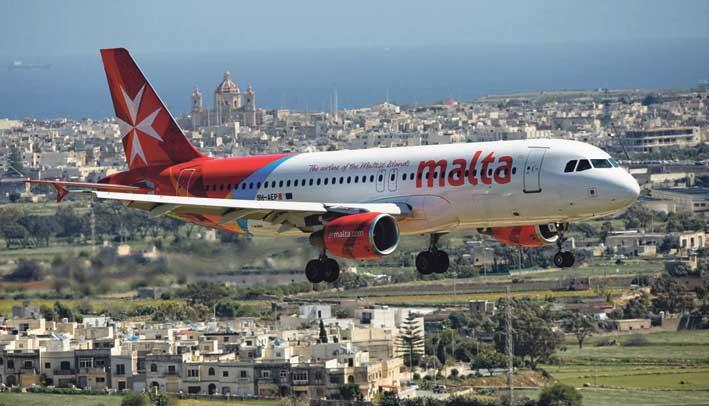
The five-year strategy seems to have a particular focus on growth. Could you elaborate?
The growth is in terms of revenue and commercial growth. Obviously, bearing in mind that savings have to be maintained at all times because value for money is vital, but also keeping in mind that the company has to survive on its own capabilities and its own assets. We cannot expect to receive any subsidies from the government. This is a fact that cannot be overlooked at any stage.
The first focus was on revenue growth. We have looked at existing routes and decided to have an additional aircraft and open up new routes. Frankfurt will be introduced in October, and the Tunis and Tel Aviv routes were added this year.
We have also opened a cargo transport route to Tunis with a private company which will fly quite regularly and will yield about €1 million. This has already begun; in fact, we have one cargo freighter flying every week to Cologne at night.
There are also plans to introduce routes to Manchester and Malaga next year, and other new routes are in the pipeline.
We are also increasing the frequency of the flights in winter to traditional destinations such as Munich, Dusseldorf, Heathrow, Fiumicino, and Brussels.
The idea is for the aircraft to fly all the time, filled up with either passengers or cargo. We are not planning to dismiss any employees, but rather increase aircraft and frequency, which will provide more opportunities and working hours for all employees of Air Malta. We need the services of pilots, cabin crew, and ground staff.
Before the election, there were always questions on whether the company would have to lose some of its workforce, because of the Alitalia discussions. We have chosen to concentrate on the core business of the airline, which is the carriage of passengers and cargo. Therefore, we have decided to hive off the ground-handling operations to a separate company owned wholly by the government, which will include about 400 employees from Ground Handling Service Operations.
Engineering work is being kept with Air Malta for the simple reason that it is a core operation of the airline since the aircraft have to be maintained.
Given that Air Malta is no longer allowed to take subsidies from the government, is the hiving agreement with the ground-handling operations being done to request more funds?
The ground-handling operations have never recorded any losses, because it also renders these services to other airlines. Now it will be able to pursue this area in a more business-like manner. The ground-handling operations will not only provide services to Air Malta but also to other airlines that are operating here and be rendered more competitive, and be provided with capital investment. We will outsource our ground-handling services to them and it will be cost neutral.

The company recently announced the 'Go-Light' product. What made the company decide to go down this route?
When we embarked on this project of growth, we knew we had to address the Air Malta product. The airline has essentially had the same product line for many years while the aviation industry and customer perception changed. British Airways, Lufthansa, and other legacy airlines have all changed, so we knew Air Malta had to as well.
We have to adjust to customer needs, not make the customer adjust to us. This how we ended up with what we call the hybrid principle. The airline will continue to operate with the same locally and internationally renowned brand of safety, service and reliability, and operate to primary airports. It will now offer a varied product and with 'Go Light' we have produced what I believe is a very competitive product. It is a customer-centric product which is flexible to the needs of any individual.
We will still be catering for all kinds of clientele; in fact we are looking to create a better business class. Business demand is changing and there are opportunities to improve the business class and increase demand for the service.
You had previously said that the infamous 'bezzun' will be gone by January. Will Air Malta still have a catering service?
We are going to improve the in-flight service and quality. It will be a totally new service; we are looking to offer better catering on the flights. A choice will be offered between either an in-flight meal or other selections. The bezzun will remain free until January because it is under contract and the cost will be borne by the company.
Is it fair to say Air Malta is becoming a low-cost airline?
No, we call it a hybrid airline because we are offering all services from business to economy on the flight, albeit in separate packages. We are providing the experience of the legacy airline and a low-fare product which will have the same levels of safety and quality of service
The experience of the legacy airline should remain there because it provided a certain amount of customer satisfaction and we need to keep the service orientated to them. These new processes will require a change in mentality in the employees providing the service, but I am sure they are up to it; they have a great reputation and will continue to uphold it.
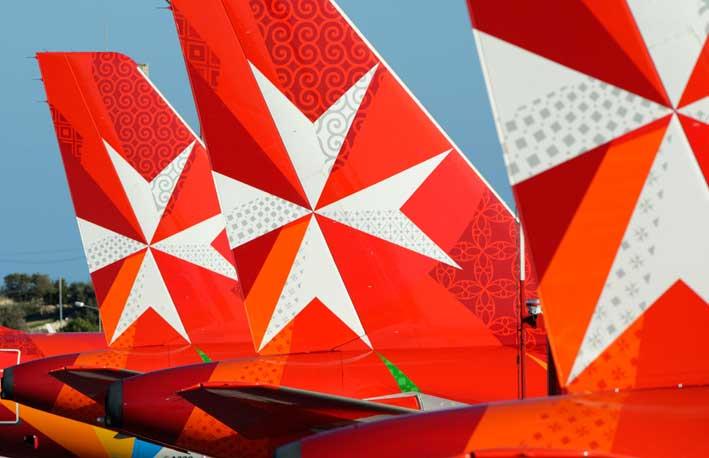
Beyond the product, what other facets are there to the strategy?
Step 3 will place significant importance on connectivity and an increase in frequency to link Air Malta to other major airports. We believe that by opening new routes will satisfy a big demand for Malta as a destination and we will get the required desired results.
A further development of our strategy relates to wider connectivity, by connecting people from Europe to North Africa and beyond. Here we see a niche opportunity for future growth. We believe Air Malta can become the connectivity airline for the Mediterranean, where we can have hubs outside Malta. This, of course, needs to be established further assessed through market research, along with internal and external opinions, to examine where we can offer competitive prices and efficient services.
Where will Air Malta be at the end of this five-year plan? The government was previously focused on finding a strategic partner. Is this the end game?
Let us not get ahead of ourselves. We are still in year zero but we believe that by the end of five years we will have an increased fleet, better connectivity, and a sustainable airline that is making a profit. This would allow us to look for further opportunities. We do not know whether it will be a joint venture or a strategic partner, we will need to look into it then. At least Air Malta will be able to have an attractive product for a partner or a joint venture from inside or outside the EU.
Cargo transport from Europe to Africa is an area we will focus on a lot as we believe there are great opportunities for expansion and revenue generation.
Details on the collective agreements were announced last week, but appear to have hit a stumbling block. Could you explain the current situation?
There is a reason why the collective agreement is for five years, as it is crucial to this five-year plan. It imperative to understand, as we have already explained to the unions, that the airline is more or less at a break or make point. We are asking all employees for more productivity, flexibility, and efficiency; we are not making demands that are outside of the norm. We are following the EASA regulations which every European registered airline has to abide by.
When coming up with the package, we knew we must apply the same principle to all the employees and would ensure an equal percentage increase. We told them that the take-home pay of the best in the last three years (2014, 2015, and 2016) will be guaranteed and that there will be increases in their basic pay (5%, 1.5%, 5%, 1.5%, 5%). If in any year within the next five years, the take-home pay of the best year is not reached, the company will top it up for each individual.
The proposed increase will cost us €16 million over five years. The current wage bill is in the region of €35 to €40 million, which will change with the ground-handling operations being hived off.
Air Malta cannot ask for a subsidy. It is prohibited and cannot be done, and if anyone has it in his or her mind that we would be able to hide it is living in fantasyland. Air Malta can only rely on the assets it has, which are the flight slots and those are hypothecated in favour of BOV. The situation is extremely delicate and I am only saying this because people have to comprehend the real situation.
We have to be very careful, which is why we are saying that this is the maximum because we simply cannot give more, it is not a question of negotiation, and I think it is a fair offer.
I understand that unions have the interests of the employees, but endangering the benefits they have already obtained is a different thing entirely and needs serious consideration.
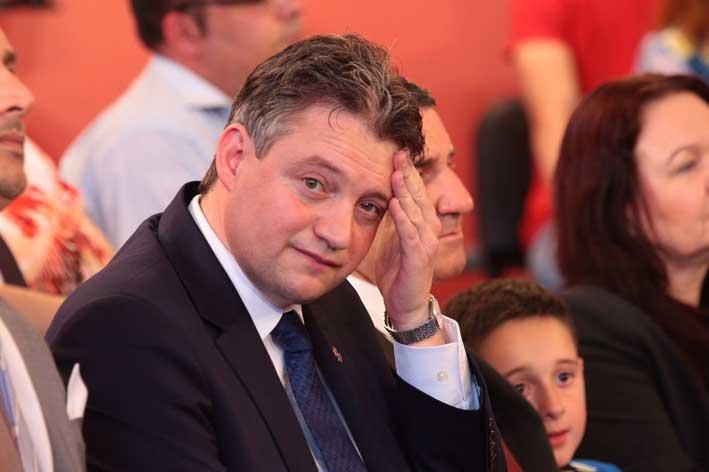
So was Minister Mizzi's statement concerning insolvency an ultimatum?
I want to make it clear that it was not a threat, but a state of fact. We are working in a commercial business environment; if the company becomes insolvent you automatically go into liquidation which will result in massive job losses. This is a route which we are determined to avoid but we need the cooperation and comprehension of all involved.
The reality is we are willing to provide every individual employee with all the details of the take-home pay and how it will secured. We have already communicated to the unions and the works council the financial state of the company.
There is an open-book policy to show each employee the actual figures of how much their take-home pay will be how much their pay will increase so they can make an informed decision.
Both you and the Minister have stated that collective agreements will be completed by 1 January 2018, which is barely three months away and beyond the hiving agreement, and it appears that this may not be reached. Do you have faith that the collective agreements will be concluded?
I went on the ground to meet employees, I have not yet met everyone, but there were two things that I noticed which give me a lot of hope. The employees truly love Air Malta, and I believe that they will understand once we explain the situation that there is a future for the company. The company is in a completely different situation to what it was six to eight months ago, we are no longer in an uncertain state, and we are not only offering job security but also a potential improvement of wages.
We do need to conclude it as quickly as possible since all our plans, the new routes, aircraft, hinge on these collective agreements. The ball is rolling, but hurdles in the way will only slow everything down.
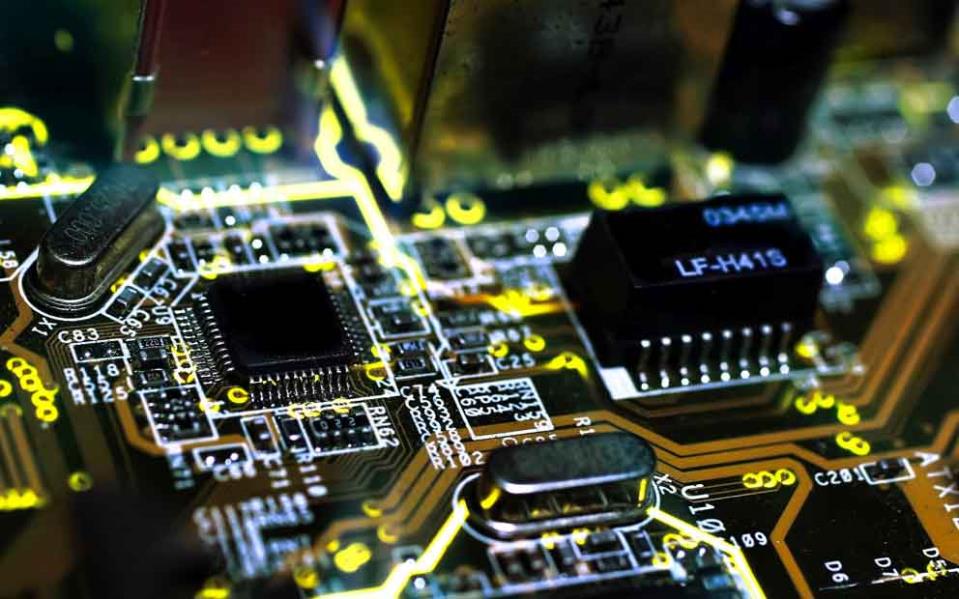
Air Malta may be breaking even but needs heavy investment in ICT. Are there any plans in place?
We have invested €2 million to upgrade the IT, which was not done in the last 10 years and was no longer compatible with systems abroad. Code-sharing and similar agreements could not be exploited because of the IT infrastructure, but by next summer Air Malta will be top notch in the field of sales, routing, and IT. This is the next leap and will increase job opportunities for professionals graduating from university.
Air Malta is a seasonal airline with has double the number of passengers in summer than in winter. How is the strategy going to tackle this issue?
During the summer months, especially in July and August, Malta has reached saturation point and the cash flow is very good. The 'Go-Light' product and all the other elements are targeted at improving the low and shoulder months in winter, and we will target it aggressively. This is why we launched the product before any collective agreements were reached because we need to address the issue now.
Will the fares yield a profit?
While there has been a lot of transparency regarding Air Malta in the last few months, the public is still completely in the dark over the real financial situation of the airline. Can you divulge any details?
The audited accounts 2015/16 and 2016/2017 will be announced at an AGM to be held in November this year.
What sort of figures are we looking at?
The indications are that there would be a break-even element, which is why there cannot be any manoeuvrability on the collective agreements or additional pressures on the finances of the company. To be fair, 2017 has already seen an increase in revenue and passenger numbers.
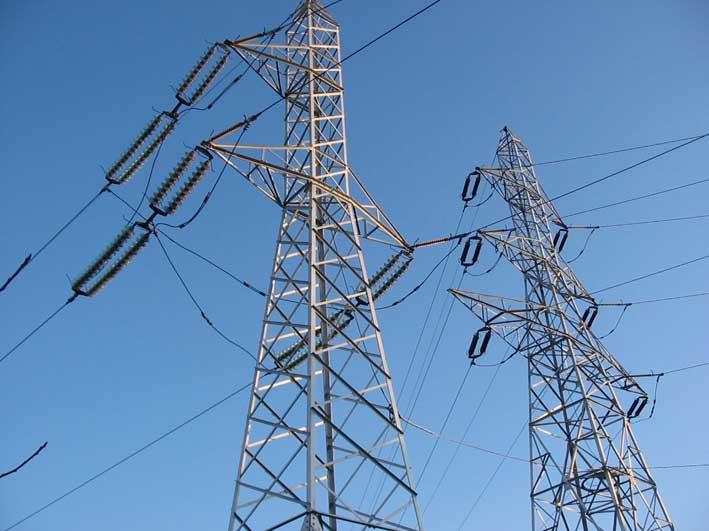
You were also chairman of Enemalta; it seems that you and Konrad Mizzi have a close working relationship, is that correct?
Definitely, the Minister and I work in tandem. He is very focused, hands-on, and has excellent managerial qualities, but he also has business acumen and sharpness. He understands the issue and can think properly about solutions. With regard to Enemalta, we analysed the situation immediately and held that it required a strategic partner. With Air Malta, we knew the situation was different; he is a decisive minister who cares about the airline and his hands-on approach is greatly appreciated by the workforce.
He always follows the strategy and wishes there will a positive conclusion to the pending collective agreements. He spoke of insolvency as a statement of fact, because if the company cannot meet its debts it will become insolvent. He wants to avoid that but needs to be a responsible politician and see the bigger picture in the national interest.
You have a long and respected history in politics. You were at one time the Leader of the Opposition, Deputy Leader of the PL, a Minister and a PL MP, you have also served as Enemalta chairman, you are now the Air Malta chairman. Given that cronyism and issues on meritocracy have plagued both PN and PL administrations. Can you give assurances that you are free from government interest?
I have always said that I hope that Air Malta will not be used as a political football. Politically, I have had longish history and have shown that I can easily work with anyone. All I ask from employees is that they are loyal to the company, and if there is anyone who is not because of some political alliance, we will have problems. The absolute majority of the employees of this company want see Air Malta become a success. The Prime Minister has invited the Opposition, which I believe has a responsibility to Air Malta, to hold discussions on the airline. There is a lot of approval for our new strategy which is beneficial to any party as successive governments will inherit this national asset.

Robert Arrigo told me in an interview that this was proposed by the PN throughout the previous legislature, and accused the government of often ignoring their proposals. Have they been consulted or approached you over the few months you have been chairman?
Let's be frank, they had the leadership issue and I didn't think it was appropriate until all was settled. I have no objection explaining to the Leader of the Opposition and Shadow Minister what the plans are, which is already public knowledge. We are looking reality in the face and reacting accordingly. I am positive that reasonableness will prevail even though it is a hot political area.
In the end everyone has to assume responsibility - myself, the employees, the government, the Opposition and the unions. Air Malta, which started operating in 1974, was, is and will remain a vital asset to our economy.